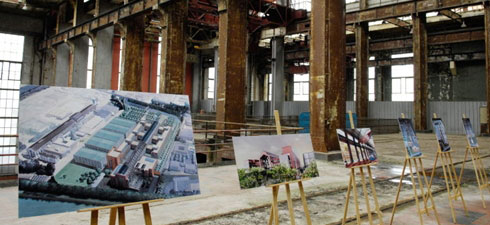Woody Allen is filming in France, Martin Scorsese and Clint Eastwood are scheduled to arrive here soon, and even Madonna is planning on shooting some of the scenes of her third film in Paris. This summer the air in the French capital is heady with scent of Hollywood. And the Americans are here for a reason: since the beginning of 2010, France has been offering a 20% tax break to foreign production companies, which means that film makers from the other side of the Atlantic can cut up to four million euros from their budgets. As the Berlin based producer and writer, Udo Bomnüter, explains “France has adopted a concept that has already proved successful in Germany.”
Since 2007, the German Federal Film Fund (DFFF) has offered similar grants for production costs, which are subject to certain conditions. The DFFF replaced the Medienfonds (Media Fund), whose business model was much appreciated in Germany, but which was dubbed the “Stupid German Money” in Los Angeles, in the wake of a number of initial investments in box-office flops. With the DFFF, Germany is following the example of the UK and Ireland, which were the first countries to provide incentives for foreign production companies. “There is intense fiscal competition in Europe,” points out Bomnüter, “and Hollywood is very attentive to that.”
Location tourism is the now the order of the day for well-known American directors, whose shooting schedules are spread over several tax havens. In France, where the main priority has been the promotion of the national film industry – and in this regard French authorities have done more than their counterparts in any other European country – the view is that film is a part of the national cultural heritage that is worth preserving. However, the fact that France is “now offering incentives to foreign producers is also a matter of prestige,” explains Patricia Scheller, the co-author with Bomnüter of a book on European film subsidy strategies. The French were fed up of seeing major directors travel to other countries to shoot scenes that were supposed to happen in France: as was the case with Quentin Tarantino’s Inglourious Basterds, where the “Parisian” location was in fact in Babelsberg, Olivier Dahan’s homage to Edith Piaf, La vie en rose, filmed in Prague, and Steven Spielberg’s reconstitution of the D-Day landings for Saving Private Ryan, which was shot not in Normandy but in Ireland.
In all, French locations have been passed over by between 10 and 20 major American productions, but this era is now at an end. “France will be once again filmed in France,” announced Franck Priot, Deputy Director of Film France, the body responsible for attracting foreign producers. Priot appears pleased with the results of the new fiscal offensive. This year, Paris has served as a backdrop for more than 20 foreign productions – a considerable increase on 2009, when only one well-known director, Britain’s Christopher Nolan, shot scenes for his film Inception in the French capital.
European countries are jockeying for position in their bid to attract foreign film makers because they create jobs by employing cameramen, sound engineers, lighting technicians, costume designers and make-up artists. Woody Allen even offered France’s First Lady, Carla Bruni, a chance to appear on the silver screen — yet another positive effect of the new package of incentives. As an added bonus, the cash injection for the local economy is not limited to shooting budgets: the Americans spend weeks living in luxury hotels, and they also hire expensive locations. For example, Sofia Coppola paid 300,000 euros for a two-month shoot at the Chateau de Versailles. However, Paris is still at a disadvantage when compared to London or Berlin, because it does not have a major film studio on the lines of Pinewood or Babelsberg. But it is a problem that will soon be remedied. In 2012, director Luc Besson plans to open his Cité du Cinéma studio in the north of the French capital.
Was this article useful? If so we are delighted!
It is freely available because we believe that the right to free and independent information is essential for democracy. But this right is not guaranteed forever, and independence comes at a cost. We need your support in order to continue publishing independent, multilingual news for all Europeans.
Discover our subscription offers and their exclusive benefits and become a member of our community now!












